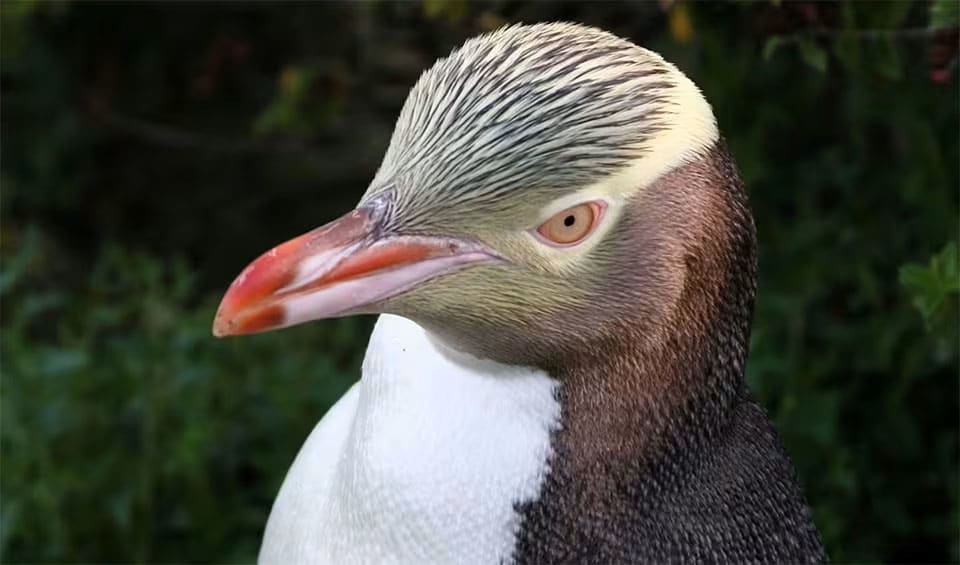The Yellow-eyed penguin, known by its Māori name “Hoiho” (which means “noise shouter”), holds a unique place among the world’s penguin species. Iit is distinguished not only by its rareness but also by its distinct appearance and behavior. This penguin is one of the most ancient living penguin species, with fossil records dating back to the mid-Pleistocene epoch.
The most striking feature of the Yellow-eyed penguin is its vivid yellow eyes and the band of yellow feathers that extends from each eye around the back of the head. This bright yellow contrasts with its pale, yellowish face, which is speckled with black, and its slate-grey back. The sides of its head and the base of its neck are fawn-brown, creating a unique and easily identifiable appearance among penguins.
Endemic to New Zealand, this species has two main populations: one on the South Island and the other on the subantarctic islands, including the Auckland and Campbell Islands. Genetic research has shown that the subantarctic populations are distinct from those on the South Island, indicating a need for separate conservation strategies.
Yellow-eyed penguins are not colonial like many other penguin species. They prefer solitary nesting sites that can be found in a variety of coastal environments, ranging from dense native forests to coastal scrub and even, occasionally, open pasture. Nests are often situated under dense vegetation and can be up to a kilometer inland, which offers protection from the elements and predators.
Distribution
 New Zealand
New Zealand Official estimate
Official estimate
 Pacific ocean
Pacific oceanAnything we've missed?
Help us improve this page by suggesting edits. Glory never dies!
Suggest an editGet to know me
Terrestrial / Aquatic
Altricial / Precocial
Polygamous / Monogamous
Dimorphic (size) / Monomorphic
Active: Diurnal / Nocturnal
Social behavior: Solitary / Pack / Herd / Colony
Diet: Carnivore / Herbivore / Omnivore / Piscivorous / Insectivore
Migratory: Yes / No
Domesticated: Yes / No
Dangerous: Yes / No
Yellow-eyed penguin on banknotes





